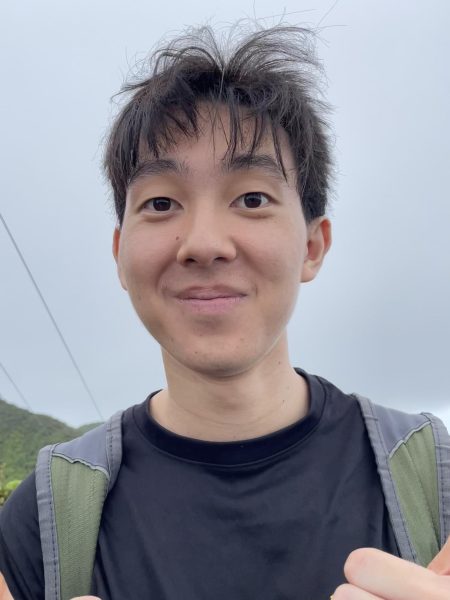The Israel-Palestine conflict has been pushed to the forefront of campus discourse in the wake of the 2023 war between Israel and Hamas, the political organization governing the Palestinian-controlled Gaza Strip. The state of Israel was founded in 1947. Before that, the entire area that makes up Israel and Palestine was under British rule. Israel and Palestine have been in near-constant conflict ever since, with both nations claiming a right to the land. On Oct. 7, 2023, Hamas militants attacked the Israeli territory surrounding the Gaza Strip. The surprise attack provoked worldwide attention, including at Carleton College.
The Students for Justice in Palestine (SJP), which described itself in a statement to the Carletonian as “an extension of the broader national student organization that is dedicated to… the liberation of the Palestinian people from their longstanding genocide and apartheid,” has organized numerous events and protests in support of Palestine. “We stand for peace, justice, and equality for everybody… We hope to mobilize the entire Carleton community, including students, faculty and staff, towards real actions… to end any Carleton support for the Zionist entity.”
On Oct. 20, the SJP held a protest on Oct. 20 outside Laird Hall, holding signs and flags while chanting slogans such as “From the river to the sea, Palestine will be free” and “Israel, what do you say, how many kids did you kill today?” SJP later hosted a bake sale for the Palestinian Children’s Relief Fund. Last Nov. 9, the organization gathered on the Mini Bald Spot, marching throughout campus and concluding with a rally at the chapel.
The SJP has formulated a list of demands of the college. The first of these was the cancellation of the Jonathan Paradise Israel Experience scholarship. A Judaic Studies program founded in 1977 in which students study or work in Israel, SJP argued the scholarship “normalizes the state of affairs in occupied Palestine.”
The SJP further demanded that “all those who stand with Palestine be able to do so without fear of institutional repercussions” and that Carleton “re-issues a statement acknowledging the Palestinian genocide and condemning the current Zionist and colonial occupation.”
Historians have been divided over whether the term “genocide” is an accurate representation of [JUMP] anti-Palestinian violence. An anonymous student gave their thoughts about the classification. “I don’t know if it’s genocide, but it’s definitely Apartheid at least. If Israel is going to occupy [Arab-inhabited] areas, these people need to be given equal rights instead of being treated like dirt,” said the student.
The college’s previous communications regarding the war in Gaza included a joint statement from College Chaplain Schuyler Vogel ’07, Associate Chaplain of Muslim and Interfaith Life Ailya Vajid and Associate Chaplain of Jewish and Interfaith Life Shosh Dworsky in which the chaplains expressed their hope “that as a Carleton community, we can embody our values of compassion, thoughtfulness, curiosity, and bridge-building; striving together to create a world free from injustice and war.” Dworsky wrote in a later statement that “I want people to live, whole in body and spirit… I will continue to work and hope and pray for peace in Israel, Gaza, the whole region, and beyond it.”
Polling done by Harvard University shows a clear divide over the Israel-Hamas hostilities among 18-24 year olds, with 48% supporting the Israeli counteroffensive and 52% disapproving of it.
American Studies professor Chris Elias described this as “a debate that is dividing the liberal left….College students in the United States now tend to be more liberal… you have, classically, a Jewish foundation for supporting the Democratic Party and liberal politics in the United States that has typically been very strong. At the same time, though, you have a number of liberal college students who have been influenced by some of the humanitarian language that’s been used by pro-Palestinian — not pro-Hamas, but, rather, pro-Palestinian — forces, this idea that has come out in the last 20 years of Gaza being ‘the world’s largest open-air prison.’”
An anonymous Carleton student criticized the protests on campus. “To say ‘Free Palestine’ right after Israel was bombed is incredibly insensitive.” When asked about Israel’s response to Hamas’s attacks, the student said that “they’re in a lose-lose situation. They have every right to respond, but they have to be careful. Most people just want peace, and the Israeli response is far overboard by now.”
Some students are ambivalent to the ongoing protests. “In the bigger picture, it’s not going to change anything,” said an anonymous student. “Protest movements need to stand for more than just protesting. All of us are far away from the bombs and airstrikes, so why pretend like we are the victims here?” Another student commented, “Both countries are killing civilians… I don’t see how the United States could stop the killings if they wanted to.”
Professor Elias also marked a distinction between the attitudes of Jews in Israel and Jewish Americans, including their differing motivations. “By and large, Israel is a country of immigrants. Since 1948, the people who have lived in Israel have moved there explicitly because they believe deeply in the Zionist project and are very much tied to their Jewish roots. So as a result, most Jews in Israel are going to be, by definition, much more in favor of Zionism than Jews in the United States. Perhaps Jews in the US have a greater sense of distance from the Zionist question.”
The SJP has raised over $2,000 for the Palestinian Children’s Relief Fund. They remain active and meet on a weekly basis.











Johanna Ahn • Nov 11, 2023 at 2:55 pm
Well written. Helped my understanding of the situation.